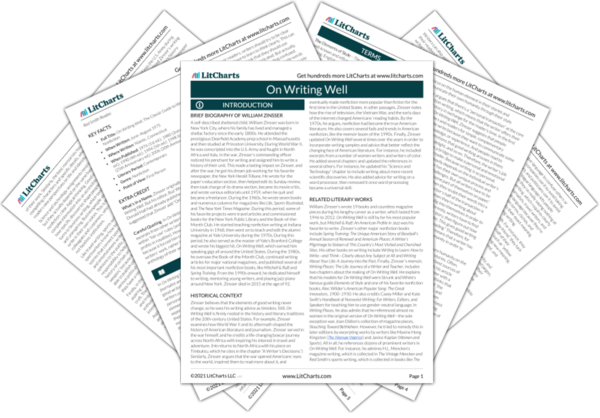Timbuktu Quotes in On Writing Well
What struck me most powerfully when I got to Timbuktu was that the streets were of sand. I suddenly realized that sand is very different from dirt. Every town starts with dirt streets that eventually get paved as the inhabitants prosper and subdue their environment. But sand represents defeat. A city with streets of sand is a city at the edge.

Unlock explanations and citation info for this and every other On Writing Well quote.
Plus so much more...
Get LitCharts A+At such moments I ask myself one very helpful question: “What is the piece really about?” (Not just “What is the piece about?”) Fondness for material you’ve gone to a lot of trouble to gather isn’t a good enough reason to include it if it’s not central to the story you’ve chosen to tell. Self-discipline bordering on masochism is required. The only consolation for the loss of so much material is that it isn’t totally lost; it remains in your writing as an intangible that the reader can sense. Readers should always feel that you know more about your subject than you’ve put in writing.
Getting on the plane has taken me to unusual stories all over the world and all over America, and it still does. That isn’t to say I’m not nervous when I leave for the airport; I always am—that’s part of the deal. (A little nervousness gives writing an edge.) But I’m always replenished when I get back home.
As a nonfiction writer you must get on the plane. If a subject interests you, go after it, even if it’s in the next county or the next state or the next country. It’s not going to come looking for you.
Decide what you want to do. Then decide to do it. Then do it.












